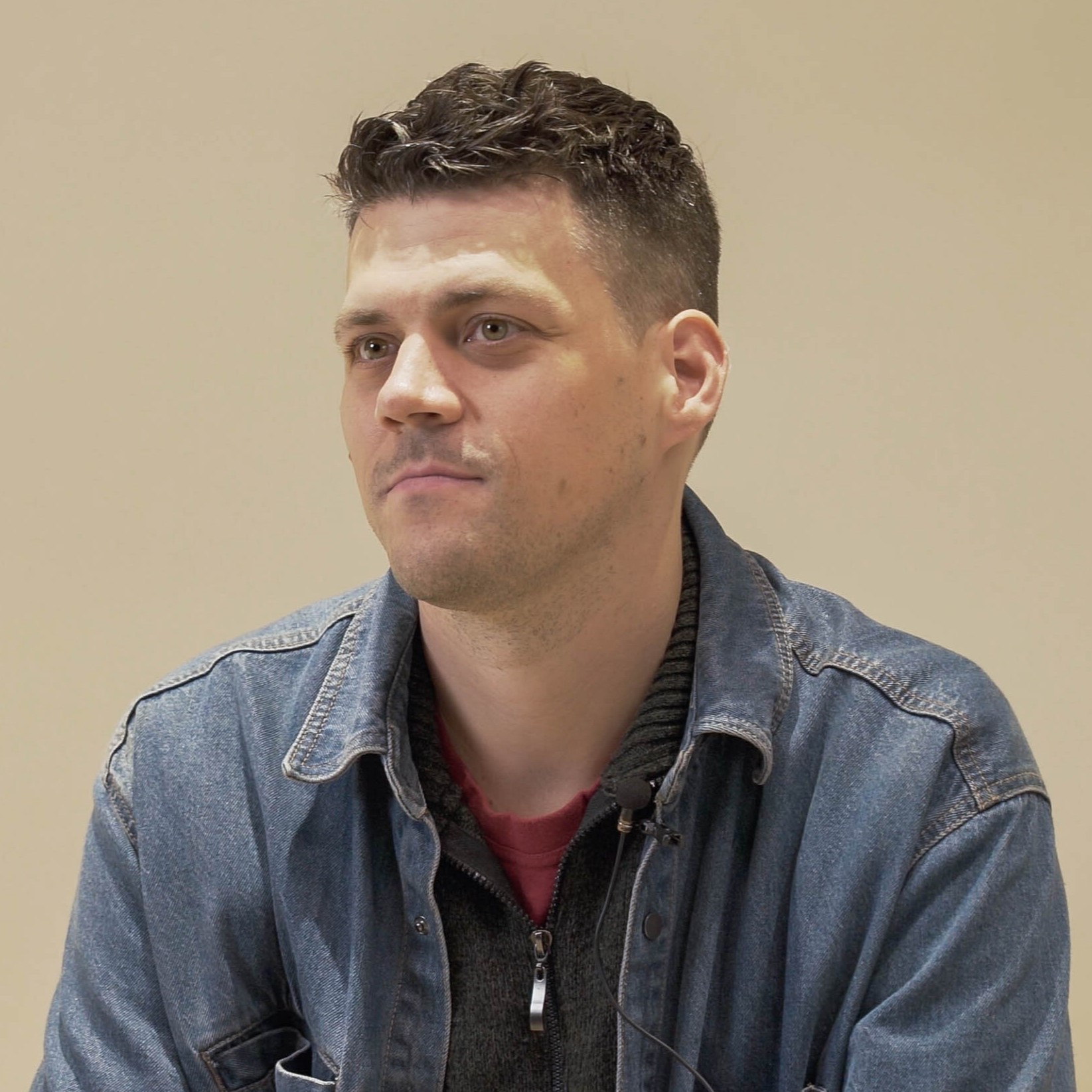BIFAN-winning director Francis Galluppi says ‘don’t go to film school’
Long journey to screen made possible by financier who sold his house
By Kevin Lee SelzerPublished : Aug. 22, 2024 - 10:44
“I would argue that this movie is not a Western,” Francis Galluppi, director of “The Last Stop in Yuma County,” said about his first feature film just hours before it won the audience award and top competitive Best of Bucheon title at Bucheon International Fantastic Film Festival on July 12.
The film takes place deep in the desert of 1980s Arizona at a diner next to the only gas station in a hundred miles. More than one mysterious stranger makes an entrance, denim and cowboy boots are the standard dress code and it’s a given that anyone would have a six-shooter or shotgun handy.
“It's more of a neo-noir than it is a Western,” Galluppi clarified, “but yeah, f--- labels, whatever.”
Neo-noir or Western, “Last Stop” is a brisk and tense 90-minute affair that centers on a simmering hostage situation in a rural diner. Among the patrons waiting for the gas truck to come by are two men who robbed a bank early that morning -- and who intend to cross the border into Mexico by any means.

Some hostages don’t know the situation they’re in, while others have their own plans. By the time they all get on the same page, the tension explodes into the kind of sequence that has invited comparisons of the director to artful American purveyor of drama and violence Quentin Tarantino.
“Was that the reference? No, it was like Don Siegel and Sam Peckinpah, but those are also Tarantino's references, right?” the 35-year-old director told The Korea Herald. “Getting compared to anybody of that caliber is like pretty f---ing cool, I'm not going to complain about it.”
The director’s style quickly caught the eye of Sam Raimi, who has chosen him to write and direct a future “Evil Dead” movie. “Francis Galluppi is a storyteller who knows when to keep us waiting in simmering tension and when to hit us with explosive violence,” Raimi told Deadline in April. “He is a director that shows uncommon control in his feature debut.”
And it’s a good fit.

“'Evil Dead' is sort of the movie that inspired me to go out to the middle of nowhere with my friends and make something,” the director said, explaining how important that film and the horror genre have been to him. While he enjoyed great films like “Back to the Future” and “E.T.,” their epic scale seemed impossible.
“Then you see 'The Evil Dead' or a movie like 'Funny Games' where it's really contained and you're like, 'f---, I can do that,'” he said. “It's four characters in a room.”
Yet, before film, there was music, “I grew up playing in bands, I went to college for music, that was my whole life.”
While the director says the musician's life is behind him now, he emphasized, “sound and music is a huge part of the process for me.”
“I'm always writing needle drops in my scripts,” he pointed out. “I love editing my own movies too because … there's a rhythm to everything.”
Getting the rhythm of the story from the page to the big screen, however, “was a very long journey.”
After gaining the financing to work on his first feature script, the film was optioned to a company with a budget of $5 million – an incredible prospect at the time – but “it was just a real f---ing nightmare,” the director lamented. “It was just the name game of 'We need Jean-Claude Van Damme' and all these names like that.”
When that deal expired, Galluppi decided to get to work first and worry about the money later. He personally wrote letters to the actors and went to the filming locations for previsualizing.
Coming up dry in the typical route of private equity, the director describes, “James … the guy who gave the development money (to write the script), is like, ‘F--- this. I'm just going to sell my house to finance it.’” After exhausting other options, “he sold his house and we were up and running, so it was a very, very independent project.”
The movie was ultimately made on a budget of about $1 million.

“Nobody is going to believe in you more than you, and you need to act that way,” the director said, stressing that aspiring filmmakers need to get creative.
“Don't go to film school, go out and make something,” he said. “You don't need to wait for permission and do the traditional Hollywood route.”
Before coming to Bucheon, Gyeonggi Province, “The Last Stop in Yuma County” had a limited theatrical release in the US in May and began streaming in many countries. It released on Blu-ray on July 16.
A documentary on the film’s production meant to “inspire filmmakers and serve as almost a blueprint” is also in the works, to be titled, “Sell Your House.”
Reflecting on what’s left for the film, the director had one goal left: “I hope James can buy another house.”
“I've gotten my next movies lined up because of this one, which is incredible. No one needs to sell their house to finance it.”

In addition to a future “Evil Dead” film, Galluppi is ready to make an “actual Western” with “Yellowstone” creator Taylor Sheridan’s Bosque Ranch, from a script written around the same time as “Last Stop.”
With a busy schedule ahead, is he ready to relinquish control and let another director take one of his scripts? “I write to direct,” he said, dismissing the notion.
“Somebody else directs your script and it's bad, and you're like f---, I should have done it,” he said. “Or it's really good, and you're like f---, I should have done it.”









![[Weekender] Korea's traditional sauce culture gains global recognition](http://res.heraldm.com/phpwas/restmb_idxmake.php?idx=644&simg=/content/image/2024/11/21/20241121050153_0.jpg&u=20241123224317)








